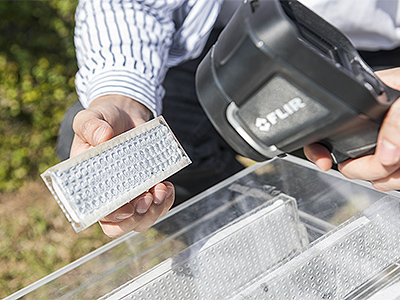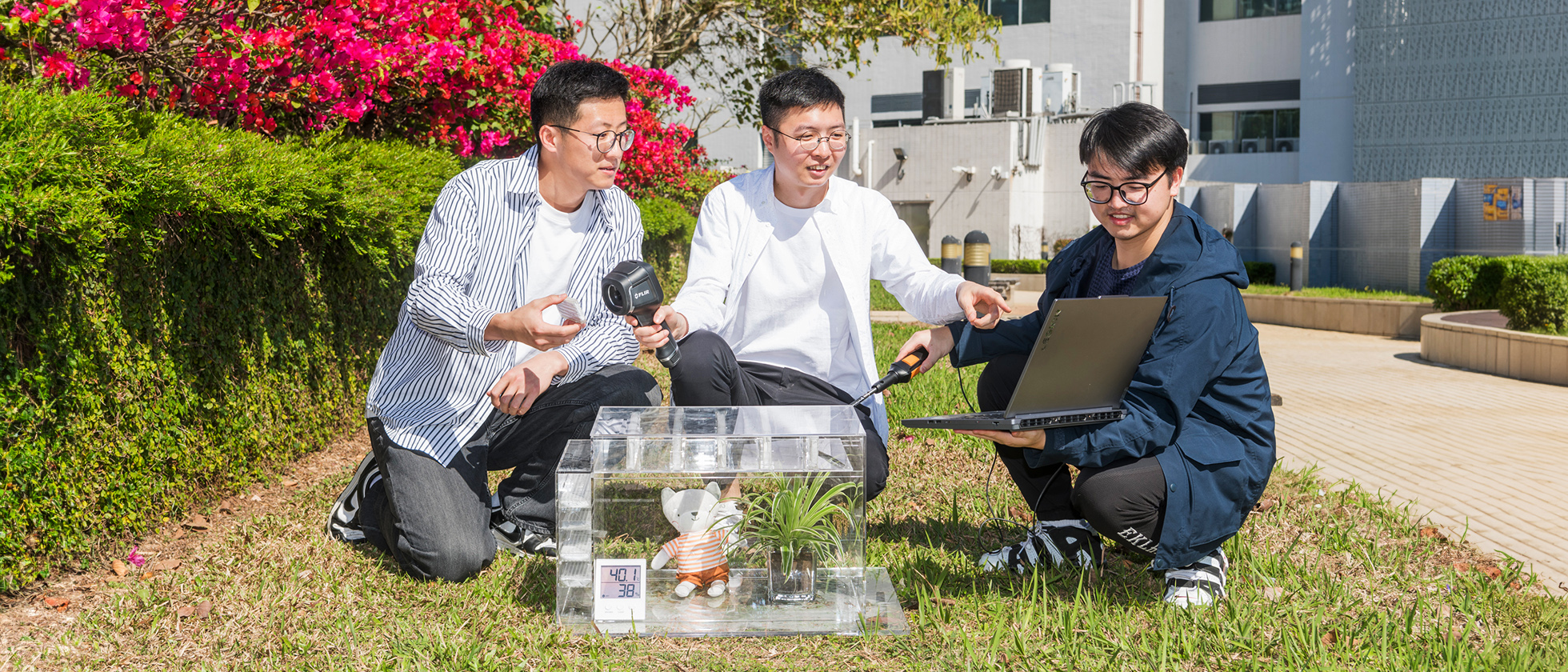Silver Award and the Best Sustainable Solution Award at the 3rd Chun Wo Innovation Student Awards
Zhang Zhenwen (left)
PhD student, College of Engineering
Lo Wai-kin (middle)
PhD student, College of Engineering
Xu Qili (right)
PhD student, School of Energy and Environment
“We are committed to innovating green energy solutions.”
Lo Wai-kin and Zhang Zhenwen, PhD students from the Department of Mechanical Engineering, along with Xu Qili, a PhD student from the School of Energy and Environment, recently won both the Silver Award and the Best Sustainable Solution Award at the 3rd Chun Wo Student Innovation Awards. They were recognized for designing a novel Camel-Fur-Inspired Passive Sorbent Cooler System (CPSC system). Currently, they continue to delve deep into their respective fields. Although the path of scientific research presents various challenges, they believe that with perseverance, they will ultimately be able to unleash their potential and contribute to sustainable development.
Wai-kin and Zhenwen specialize on droplet kinetic energy, Qili focuses on solar energy. All their work is related to renewable energy. All three are doctoral students under Professor Steven Wang, Associate Vice-President (Resources Planning) and Professor from Department of Mechanical Engineering and the School of Energy and Environment. Wai-kin is a local student who completed his undergraduate studies in the Department of Mechanical Engineering at CityUHK, while Zhenwen and Qili are from mainland China.
The trio have benefited not only from CityUHK’s state-of-the-art laboratories, but also from its academic culture and emphasis on interdisciplinary research. They frequently discussed their research, and upon learning about the Chun Wo Student Innovation Award, they decided to enter the competition as a team, combining their respective strengths. Zhenwen and Qili's observation of Hong Kong's excessively low air-conditioning temperatures inspired their research topic for the competition. Noting the substantial electricity required to maintain this, they conceived the idea of using cooling technology to enhance energy efficiency in buildings.

Drawing inspiration from nature, the team turn to camels, the “ships of the desert”. These remarkable creatures survive scorching desert heat by storing water in their cells at night and releasing it during the day to disperse heat when temperatures soar. To create a cooler system mimics this camel-like efficiency, the team faced three main challenges: first, identifying a material that could absorb water like camel cells, while selecting the right base material to minimize leakage; second, developing a method to release the absorbed water to disperse heat effectly; and finally, adapting this system for use in buildings.
After careful consideration, they chose salt as the water-absorbing material and incorporated a fan for controlled water release. This combination proved to be both manageable and suitable for building applications.
From registration to the final presentation before the jury panel, the competition spanned over six months. Throughout this period, Professor Steven Wang provided invaluable support, offering guidance on technical issues, and coaching them how to effectively respond to the jury’s questions.
Their hard work ultimately paid off, earning them a Silver Award. The CPSC System they developed distinguishes itself from the conventional radiative-cooling approach in two significant ways: it offers theoretically unlimited cooling performance and can be actively controlled. However, the path to commercialization still requires further refinements. The team needs to enhance the system’s cooling performance and adaptability, as well as study its long-term impact on buildings.
Now, the trio is also exploring other technologies that can contribute to sustainable development. Wai-kin is exploring triboelectric generators technology; Zhenwen is focusing on nitrogen fixation using droplet kinetic energy; and Qili is concentrating on hydrogen production from solar energy. Throughout their research journey, they always remember Professor Steven Wang’s encouraging words: failure in experiments is common and should be embraced; only by accepting setbacks and learning from them, one can push their research further.
For more stories about our Heroes, please click here.
